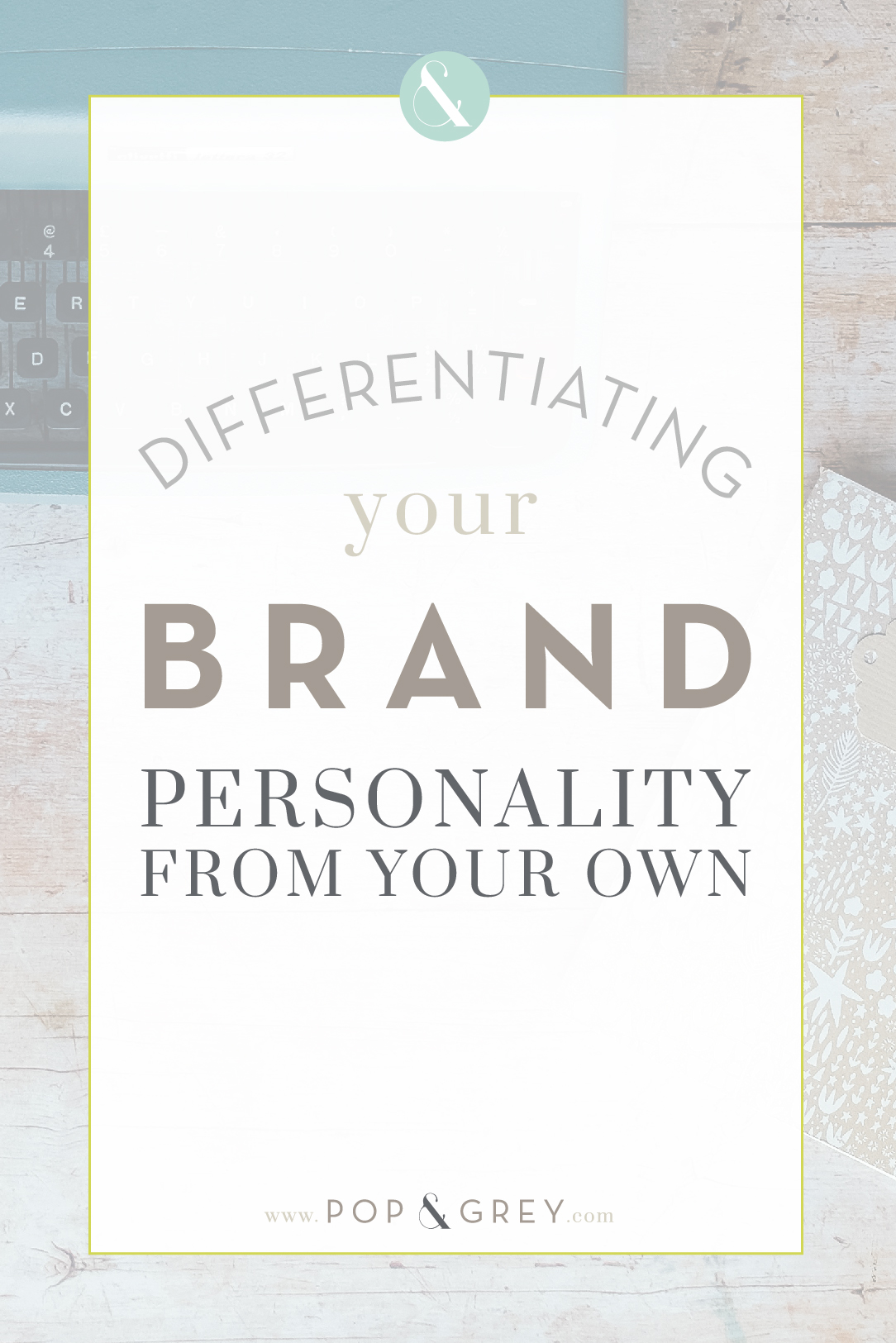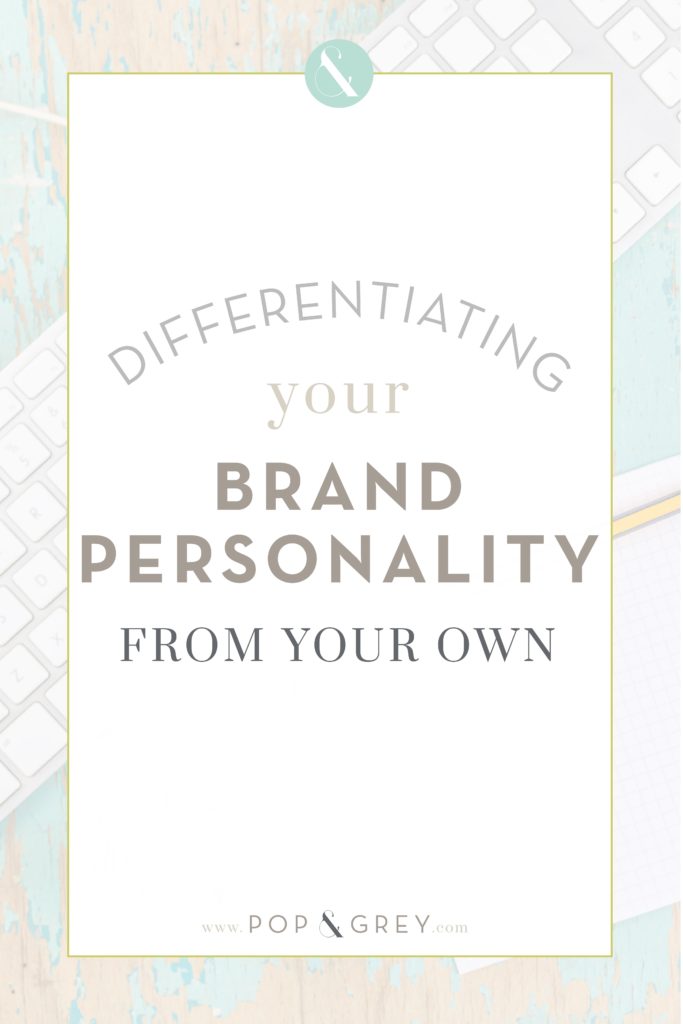
Personality is the emotional, human part of your business, so it’s easy to jumble your brand’s up with your own and not know where you end and your business begins. A personal brand personality is just as deceptively complicated, yet simple, as it sounds. Last week we discussed your brand’s personality and how to define it. A question I get a lot is whether discovering your brand’s personality is as easy as knowing your own.
The answer is sometimes, maybe. Clear as mud, right? This is especially true for personal brands. So where do you draw the line?
Brands are more human than ever, engaging with a community on social media and transparently sharing their soul through blog posts and live videos. Many powerhouse brands are built around a person rather than a business name…just look at Marie Forleo. There is a fine line of distinction between your personality and your brand’s, and sometimes they overlap more than others. There is no scientific formula to know what works for you, and part of the process is just determining what feels right. Here are a few steps to get you thinking about what will work for your brand.
pick one personality trait to focus on
Even if you have a personal brand and want more of your personality to shine through, your audience doesn’t need to know all the nooks and crannies of you. Be strategic in what you share, have a reason for it, and do it over and over again. Your entire personality is way too complex to effectively come across consistently in your communications if you aren’t using it intentionally.
Think about it, as a person, there are nuances to your personality that can change based on your day to day situation. For a brand, you need more consistency than that if you want people to feel like they know you. Think about what part of your personality resonates most with your audience and aligns with your brand values and mission. Then exaggerate it. As human as we want brands to be, it is easier to have a consistently recognized personality if it’s a little bigger than in real life. Think of it like makeup for the camera. Even if you are a no-makeup gal, you have to layer it on for a photo shoot to get your same natural look. Brand personalities are very similar.
is it relevant to your customers?
We are all human, and it’s oh so hard to distinguish between what’s right for our business and what’s right for us personally. And don’t even get me started on subjective, personal opinions. Do your customers need to know your stance on political issues? While that might be an issue that’s close to your heart and wildly important to you personally, you have to make a conscious decision about whether it’s important to your brand. It may or may not be, but it’s important to think it through intentionally. Will your opinion resonate with your audience? Will it energize the values and mission of your brand? If so, then by all means emphasize that side of you. If not, then maybe that’s one of the little nooks and crannies you choose not to highlight.
what do customers most appreciate about you
Sometimes what we think is important and what our customers actually think is important aren’t the same. Ask around, do a little market research with your customers and find out what they love about you and what you provide for them, and you’ll start to build an accurate picture of how you help people. You may need to emphasize an area that you didn’t realize was a big deal. Or it could become clear that what you thought was a weakness is actually what draws a lot of people to you.
when your brand personality is different than your own
Wouldn’t it be great if we could simply brand our business straight from our personality? This should absolutely guide you so that your brand is authentic and true to your story, but it needs to be more strategic than that. List out all of the facets of your personality that you can think of before deciding which ones to highlight. Just because some of them don’t resonate with your audience, doesn’t mean they aren’t you. It just means that specific parts of you are what your audience really values about your interactions.
On a personal note, everything changed for my business when I did this process. I was highlighting the welcoming, creative, fun side of me when what my audience really appreciated about me was the clarity, expertise and efficiency I brought to the branding process for them. Yes, the branding process with me is still warm and fun (and I’ll talk your ear off about my crazy children and my penchant for margaritas), but first and foremost it is precise and clarifying. For me, that meant keeping the warm, conversational tone in my speaking and writing, but focusing more on the results that come from a strategic brand than the witty remarks about my hot mess mompreneur lifestyle. When you know what people value you about you, it’s much easier to bring those parts of yourself to the forefront and let the rest fade to the back.




Absolutley love this post! I think so many struggle with this, and I feel you’ve broken it down to be less intimidating! Signed up for the workbook too! Thanks!
I’m so glad this was helpful Jamie! Hope the workbook helps you and feel free to reach out with questions.
This was great! a struggle for me as I am just starting to make myself a larger part of my brand. I didn’t think people cared enough before, but i’ve heard all to often lately many businesses succeed or fail on whether people like you.
Yes, there are so many of us providing such similar services that it’s hard to stand out unless people connect with you on a personal level!